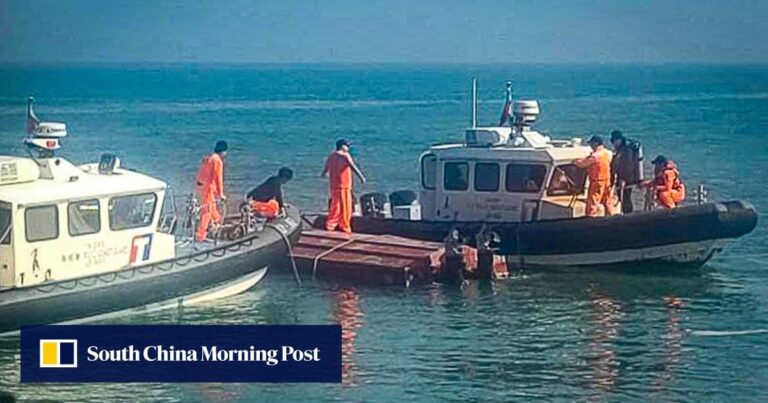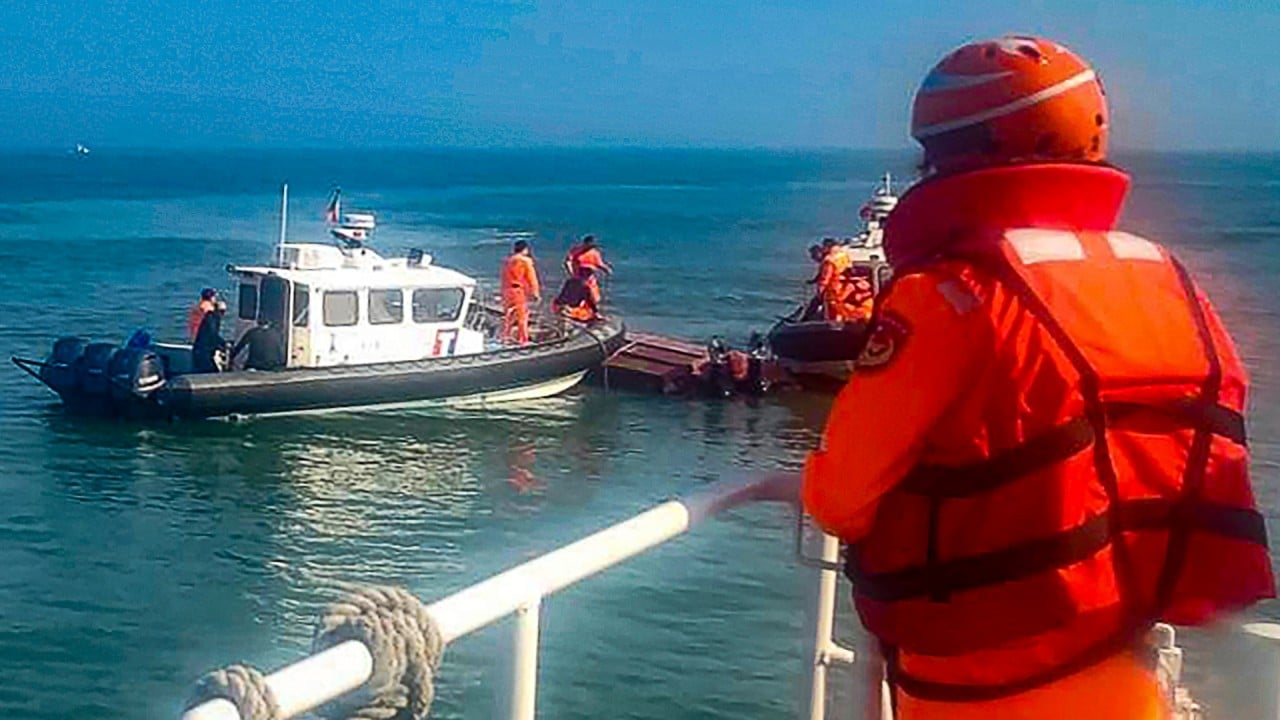Officials from mainland China and Taiwan met soon after the incident and held 15 rounds of talks, but negotiations stalled in March.
The incident has added fuel to the fire in cross-strait relations, with Taiwan’s coast guard accusing the men of entering restricted waters and mainland Chinese authorities accusing Taiwanese authorities of “violently dispersing the fishing boat”.
However, mainland China and Taiwan signed an agreement on the return of the bodies and the boat and compensation.
“More than five months have passed since the incident occurred. The two sides have finally reached an agreement through negotiations,” said Li Zhaohui, deputy director of the Quanzhou Taiwan Affairs Office.
“We hope that Taiwanese parties will actively implement the terms of the agreement and bring peace to the victims and their families.”
The agreement was attended by families of the victims and witnessed by Li Weiwei and Xu Wei of the Association for Relations Across the Taiwan Strait.
Taiwan Coast Guard deputy director-general Hsieh Ching-chin was among the Taiwanese officials who took part in the talks at Kinmen’s Golden Lake Hotel.
But the two sides have yet to detail the terms. In response to questions, Xie would only say that an agreement was reached after Tuesday’s meeting and that the atmosphere at the talks was good.
The agreement comes after signs of progress earlier this month, with TAO spokesman Zhu Fenglian saying the two sides were in contact on the matter and hoped the issue would be “properly resolved through negotiations.”
Taiwan’s Mainland Affairs Council vice-chairman Leung Wen-chieh said the meeting was “between relevant parties” rather than “between officials.”
Beijing sees Taiwan as part of China and should be unified, by force if necessary. Most countries, including the United States, do not recognize Taiwan as an independent country. But Washington opposes any attempt to seize Taiwan’s autonomy by force and has pledged to supply it with weapons.


